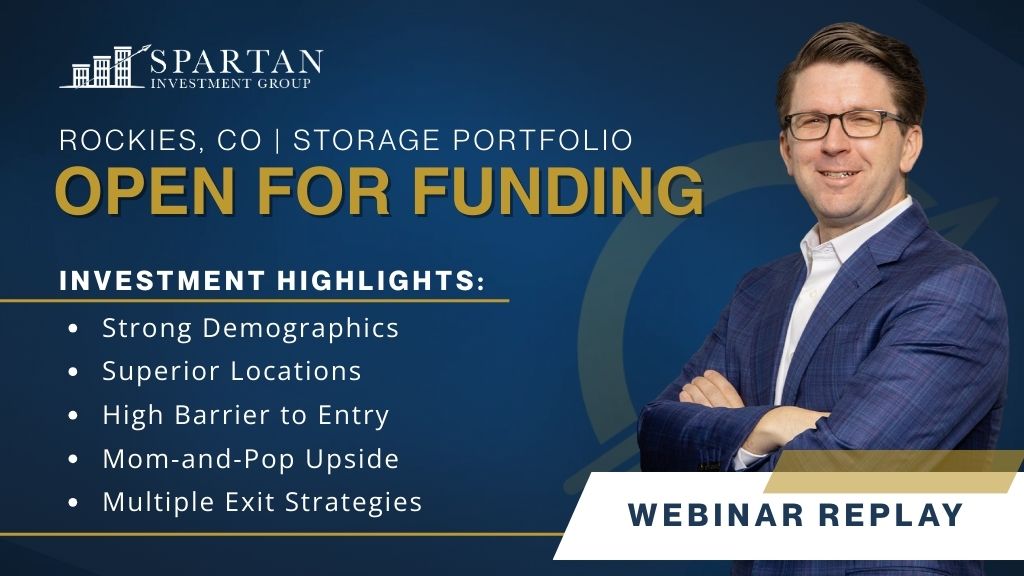Building Value in a Tight Property Market

It is a challenging time to find profitable deals on existing self-storage facilities. Interest rates are steep, and banks are backing away from financing, making it harder to secure loans. Meanwhile, because storage is still recognized as a strong asset class, property values have remained high, leading to compressed capitalization rates.
Fewer deals are coming to market, and for those that are, it is becoming increasingly difficult to negotiate terms that leave both the buyer and the seller satisfied.
However, while acquisitions may be slowing, the market is ripe for opportunistic ventures like ground-up development. To understand why, we need to take a deeper look at one of the metrics we use to assess a project: the yield-to-cost rate.
Unpacking Yield-to-Cost
The yield-to-cost rate is essentially an operational cap rate. It measures the expected return on investment by weighing the estimated income from a completed project against the initial cost basis. Whereas cap rates have stayed relatively low, the yield-to-cost rate on ground-up development is trending upward.
That means that, at the moment, it can be more profitable to build than to buy. In fact, Spartan’s ground-up projects are currently averaging a yield-to-cost rate of 9-11%.
There are several reasons for this. Fully-developed storage facilities are expensive, but there are opportunities to purchase affordable, well-positioned land in regions with elevated rents and substantial population and wage growth. Although property values are climbing, construction costs have remained stable.
Lastly, when developing or expanding a facility, the operator has more control over the outcome. For Spartan, this enables us to focus on amenities and features that attract tenants and drive up rates — leading to enhanced profits once the location is open for business.
Economies of Scale
A high yield-to-cost rate is not our only advantage when it comes to ground-up development. Spartan has years of experience delivering projects in some of the most challenging markets across the country.
Our in-house construction team is licensed in multiple states, providing us with all the benefits of a national builder combined with deep, local knowledge of the markets we serve. This allows us to retain complete oversight of construction, helping us control the value chain and mitigate risk.
Since many of our properties are concentrated within the same regions, we can leverage economies of scale to improve efficiency and keep costs low, too.
Multiple Exit Strategies
Ground-up projects also provide several exit strategies. We can buy and entitle a property and flip it. We can build a facility, obtain a certificate of occupancy and sell it empty. Or we can lease up and stabilize the asset.
Every location is different, and the optionality of having multiple exit strategies allows us to adapt to the market, remain agile and achieve the maximum return on investment for every deal.
Even when conditions are favorable, we still prioritize a proactive approach to due diligence. At Spartan, we’re mitigating risk by structuring our purchase agreements so we only close when we have full entitlement approval. That means money only changes hands once we’re certain that planned development can move forward.
Along with doubling down on ground-up projects, we’re taking steps to insulate against the tight market. We continue to identify and purchase existing value-add facilities. We’re increasing the number of offers we’re making on properties. And thanks to the flexibility of the fund model, we can quickly deploy capital when we find an attractive deal.
A Time for Growth
At Spartan, we know that the way to add the most potential upside is to build a facility from the ground up, and we launched the Growth Fund to help our investors take advantage of this.
For ambitious investors looking to capture the best possible returns, growth investing provides an opportunity to tap into the limited availability of self-storage on the market, building value from the ground up.
Want to learn more about investing in ground-up and lease-up projects with Spartan? Schedule a call with a member of our Investor Relations (IR) team.
Spartan does not give tax, legal or investment advice. Please seek outside counsel from your CPA or attorney before making any tax, legal or investment decisions.



